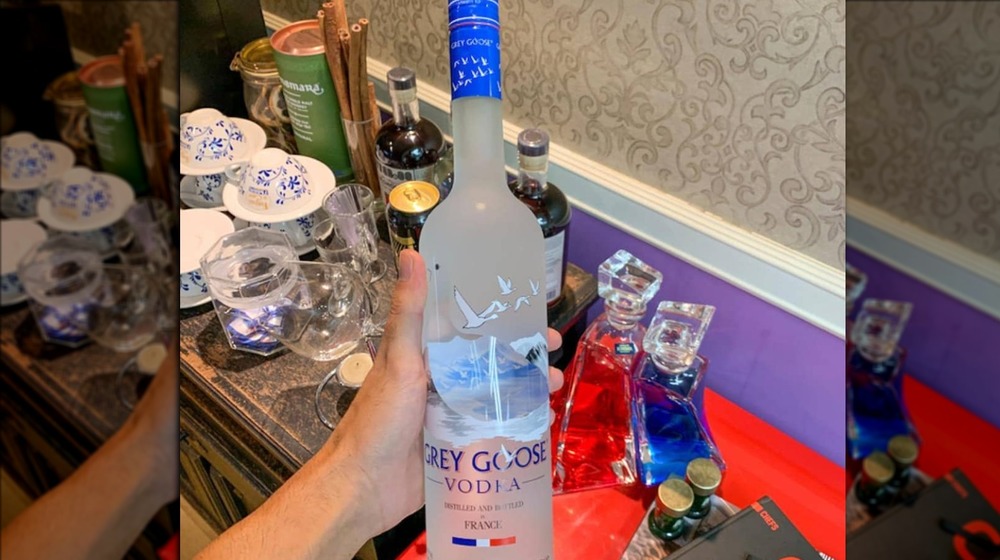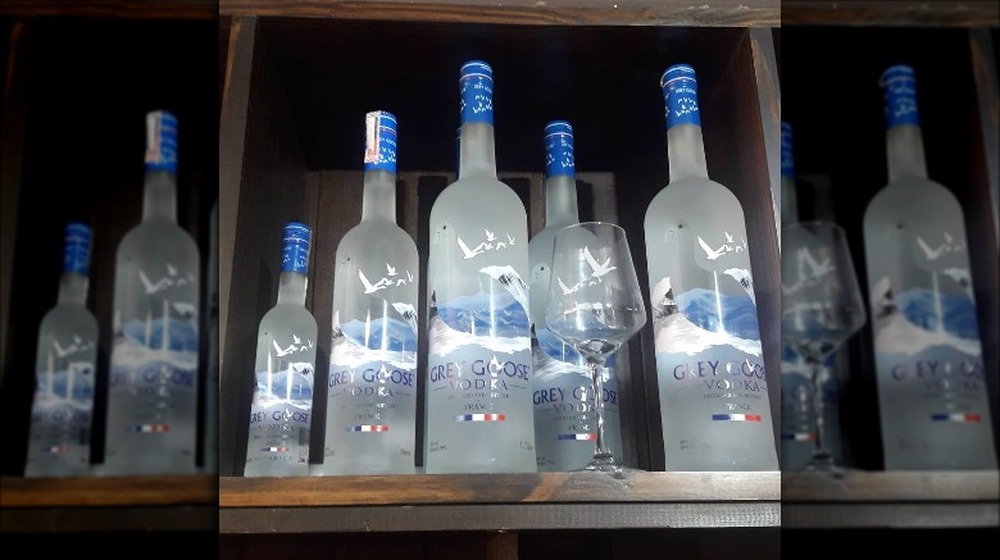Why You Should Think Twice Before Drinking Grey Goose Vodka
Whether you like your vodka mixed with orange juice in a tall glass, or prefer to drink it neat — maybe with just a bit of lemon — vodka is a highly versatile drink that you can experiment with to your heart's content (though not to the point of a hangover, please). As Spoon University so helpfully tells us, Grey Goose, one of the most iconic vodka brands in the world, was the brainchild of an American businessman named Sidney Frank. Back in the late 1990s, Frank wanted to come up with an appealing French vodka option for Americans.
In 2005, Frank explained to Inc, "The nice thing about vodka is you make it today, you sell it tomorrow; even Jägermeister is aged for a year. So you don't have to put your money into buildings and machines and warehouses. Just make it today, sell it tomorrow." That said, what Frank would probably not reveal is that Grey Goose is perhaps your best first vodka choice if you want the most bang for your buck. Here's why.
It has fared poorly in taste tests
If you compare the taste of Grey Goose to that of its competition, you'd be surprised to know that it doesn't fare very well. Less expensive brands, such as Smirnoff and Titos, performed better in taste tests, according to Refinery 29. As Reddit users pointed out in a post on Grey Goose, the brand does disappoint when stacked up against its competitors. A commenter opined, "Grey goose was created to create a false premium on vodka. It is way too expensive for how it tastes and there are a lot of cheaper vodkas that blow it out of the water."
Still, in many circles it's still considered far cooler to drink Grey Goose, as opposed to, say, a glass of Sobieski. As per Entrepreneur, this really boils down to social perception — and not much else. Folks choose Grey Goose to appear more chic in front of their peers, but this doesn't quite make it the better choice. As far as Cornell Law School's Legal Information Institute is concerned, all kinds of vodka end up being pretty much the same, because it is a "neutral spirit" that is treated in a manner that leaves it without a characteristic flavor, color, or taste.

